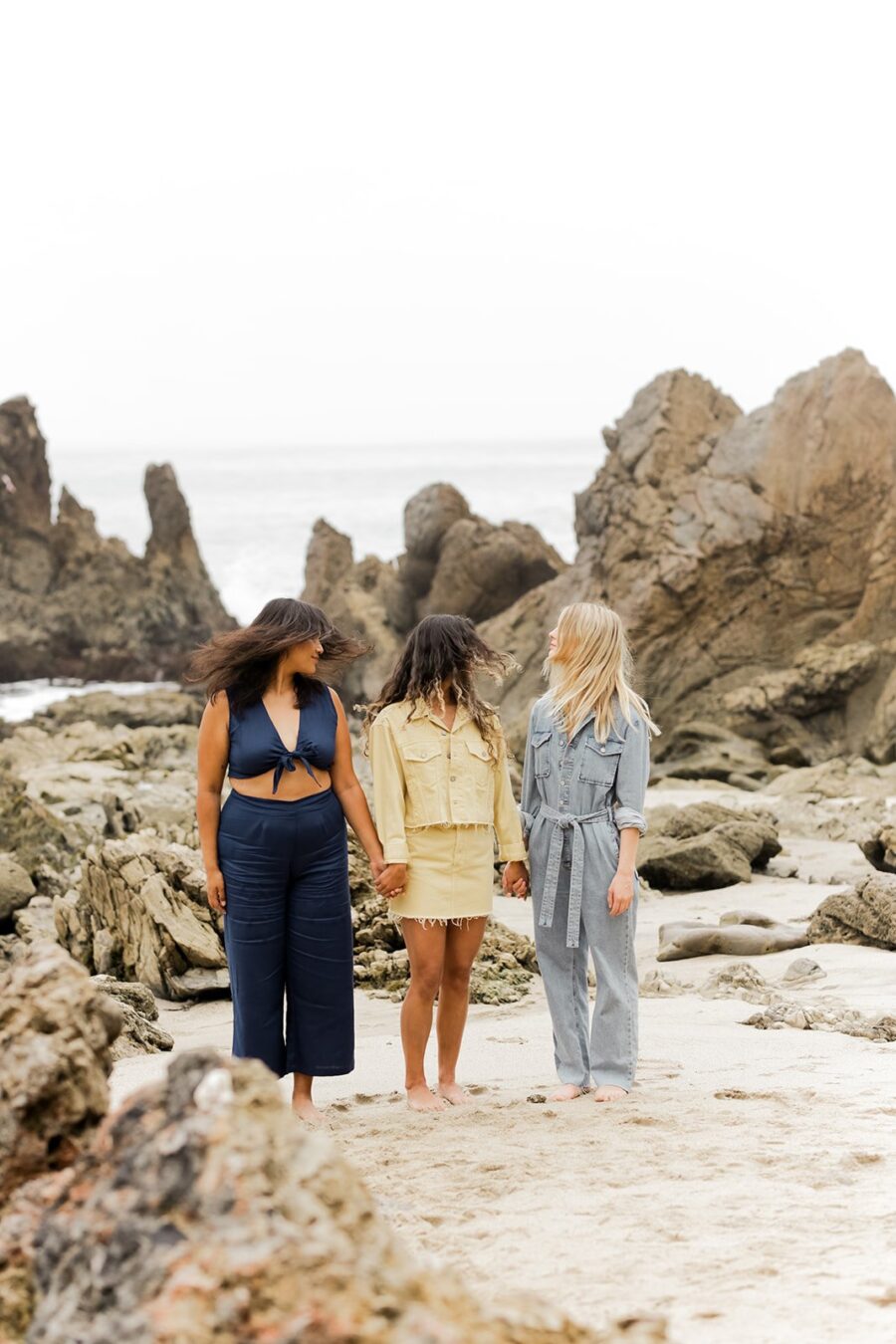
15 Women Share Their Favorite Intentional Shopping Hacks
I used to be a big shopper.
My roommates and I would hang out at the mall on weekends, picking out clothing from the sales racks at Charlotte Russe and H&M to wear dancing that night. I was consistently drawn to the cheapest, most brightly-colored pieces and would buy them even if they were damaged. When I went thrift shopping, I took home hauls of funky, not-at-all-fitting pieces and swore that I’d upcycle them into something wearable.
“When I finally got honest with myself about the problem, I said goodbye to a lot of treasures. I knew I wasn’t going to get them hemmed or repaired the way they needed.”
Soon, my closet was bursting with unwearable clothing that was all in serious need of a good tailor and dry clean. When I finally got honest with myself about the problem, I said goodbye to a lot of treasures. I knew I wasn’t going to get them hemmed or repaired the way they needed.
Then I implemented an intentional approach to shopping: I only bought what I needed, or what I could reasonably see in my permanent wardrobe rotation. I started discovering more “hacks” that suited me and my habits: I’d find pieces I loved at the mall, noted the right sizing, then turned around and purchased them on eBay secondhand. I stopped purchasing dry-clean only garments because I NEVER go to the dry cleaners. I learned the value of a good clothing swap, and happily passed along pieces I owned that a friend would treasure more.
The biggest shopping hack of them all? I moved out of the apartment that was right across the street from a Target, so impulse purchases became a thing of the (mostly) past. Of course, layer in my growing education about the environmental and human cost of fast fashion, and consider me converted.
But that got me thinking: how do other people shop? We all have our different approaches, budgets, and styles when it comes to our wardrobes, so when we asked our readers how they spend their money for our Mind Your Money series, we got to peek into their favorite shopping hacks, too. Here’s what they said.
What is your favorite shopping hack?
When I feel tempted to buy something, I put it through a general checklist of: if I wear this, will it promote an unethical brand? (I like to look it up on Good On You). Do I need it? could I spend that money on X item instead? (X item being an item I know I really want).
Find brands that you like and respect and wait for their sales, try to trade in instant fashion gratification for more intentional purchases. I find that being a conscientious shopper is financially beneficial.
Unsubscribing and unfollowing fashion (even sustainable fashion) blogs and email lists.
I love re-selling websites, as well as purchasing from them. I have saved ££s by contacting the seller directly and asking for a discount. I have bought so many new items for a fraction of the price—such as a rare pair of Doc Martens for £40 brand new!
I think about everything in comparison to how much I get paid hourly. If for instance I get $11 an hour and the item is $12, I try to think if it’s worth more than an hour at work—and usually it isn’t.
I only buy items that will last me two years or more, and wear them at least once a week. That way I know I truly get the most use out of them.
Never pay full price! Shop around and you will always find a coupon or discounted price elsewhere. Compare brands and go with the one that offers the most value for your money, not just what’s trendy.
Buy used! My husband and I check Craigslist, thrift stores, estate sales, eBay. We get plant starts from friends and family. I even buy Christmas gifts used or handmade! I have some great pieces with funny stories to tell. And it feels more connected to the community when I buy something that someone else has loved.
If something is on sale, but you don’t need it, it’s still too expensive!
Shopping with intention. 100% best thing I’ve started doing—I identify what item or item type I need, what it would eventually be worn with, and prioritize quality items. Buying with intention also means not grabbing fast fashion items just because they’re hot, and thinking long term. Finally, not necessarily getting things because they’re on sale. I’ve bought a ton of stuff in the past for no reason just because it was on sale—not always worth it.
When I shop online, I sometimes put items into the “cart” and make myself wait a few days before actually buying them. After those days have passed, I can edit the cart with a new perspective. I often end up taking things out of the cart, or not buying anything at all. Sometimes I don’t even remember what I had selected, and that’s a sign to me that that garment is not worth the money and is not memorable enough for me to own it.
For me, it’s important to know your values and your color scheme because if something gets your attention, you can ask yourself if it makes sense in the long term. Will I use it 30 times and not regret buying it? Is this in line with my character/personality? Ask questions to yourself to validate a product’s worth before you buy it.
Whenever I fill up a cart/bag in a store or online, my mother told me to go through everything one more time, one by one before check-out, asking with each item if I really need it/how much “joy does it spark” (thanks Marie Kondo). I often end up putting back a few things I don’t really need, and only spend on the items that I’m really excited about and will actually use.
Making a wishlist and letting items live there for a few months. This helps me determine whether it’s an impulse buy or something I really want that will work with my wardrobe.
Not really a “hack” but finally realizing that most clothing purchases are not going to make me really happy, and I should only buy what I love and that moves me in the direction of the wardrobe/style I want. (Seems obvious, but it took me a while to figure this out.)
RELATED READING
Emily Torres is the Managing Editor at The Good Trade. She’s a Los Angeles transplant who was born and raised in Indiana, where she studied Creative Writing and Business at Indiana University. You can usually find her reading or writing, caring for her rabbits, or practicing at the yoga studio. Say hi on Instagram!

